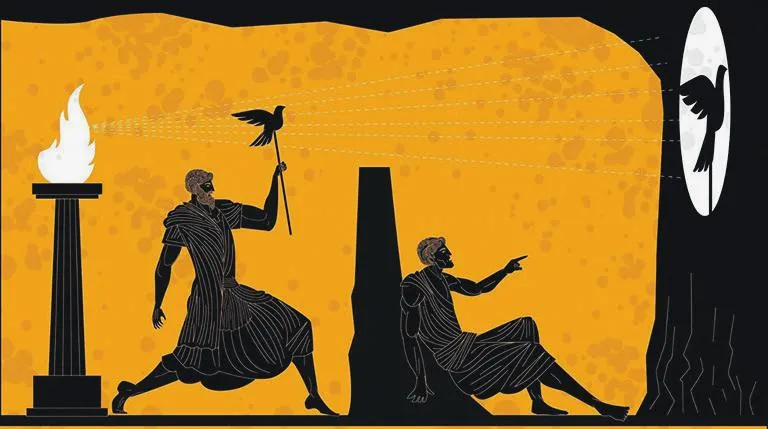‘…what is unseen is eternal.’
In 375 BC the great philosopher Plato wrote an allegory that has an uncanny connection to the gospel. The allegory describes a group of people who have lived chained to the walls of a cave all their lives. These prisoners see shadows, as objects pass by a fire behind them, and are projected onto the wall of the cave. They name the shadows, but don’t realise that the shadows aren’t accurate representations of the real world. They’re just shadows.
Plato (relating the teaching of Socrates) claimed that a philosopher is someone who has been released from the cave, experienced the captivating sunshine of the ‘real world’ outside the cave, and has come back to try and convince the prisoners that there is a greater and far richer world to be discovered.










